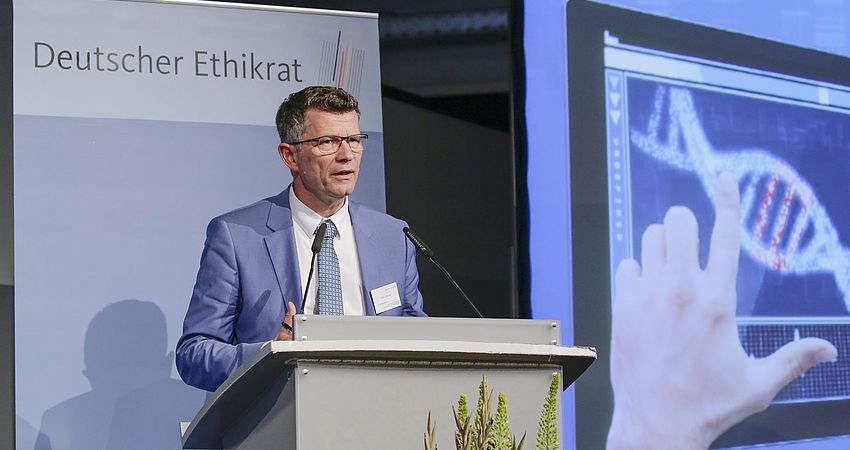Annual Meeting
Access to the Human Genome. New Possibilities and their Ethical Evaluation

Prof. Dr. Peter Dabrock, Vorsitzender des Deutschen Ethikrates, zur Eröffnung der Jahrestagung am 22. Juni 2016 in Berlin, Deutscher Ethikrat, Fotograf: Reiner Zensen
Topic
The targeted modification of the human genome used to be considered scientifically conceivable, but technically difficult to achieve. This assessment is currently undergoing a change due to new technologies such as CRISPR-Cas9. They allow interventions in the genome of unprecedented precision, which are efficient, cost-effective and relatively easy to handle. Possible applications that have been discussed in a rather abstract way are now within reach.
This puts a fresh focus on already familiar questions in the ethical debate on access to the human genome. Especially interventions in the human germline and their effects on future descendants are highly controversial. The hope of using genetic modifications to alleviate, cure or even prevent serious diseases is not only contrasted with safety risks, but also with concerns about the extension of such applications to areas that blur the line between therapy, prevention and enhancement. Therefore, interventions in the germline are still prohibited in Germany today.
With its annual meeting, the German Ethics Council wishes to contribute to the clarification of the scientific, medical, legal and ethical state of affairs and will discuss the following questions in particular:
- Should interventions in the germline of the human embryo remain prohibited, should they be allowed or are they even necessary?
- What does responsibility for future generations demand?
- Does “naturalness” set limits to access to the human genome?
- Does the ease of use of the new techniques undermine fundamental moral standards?
- Does it lead to hasty or excessive application or even slippery slopes?
